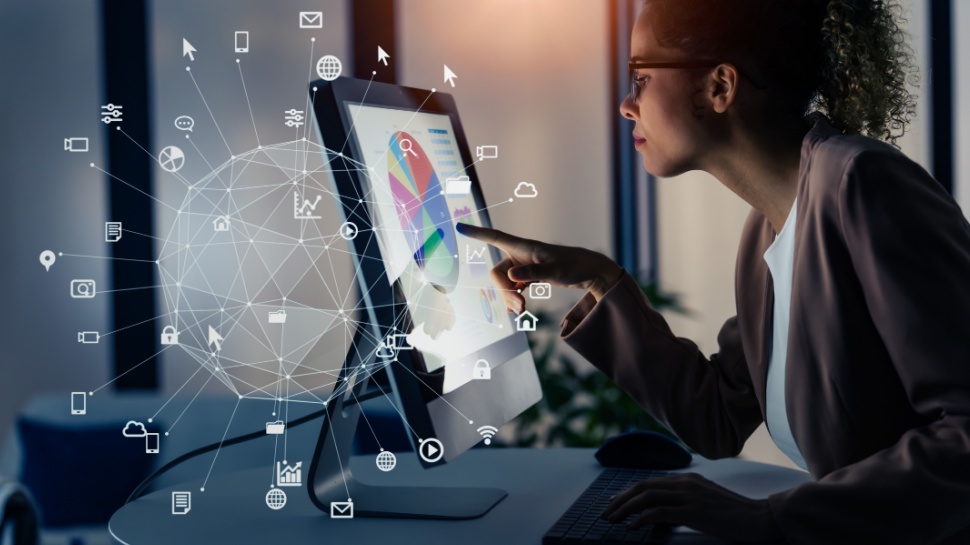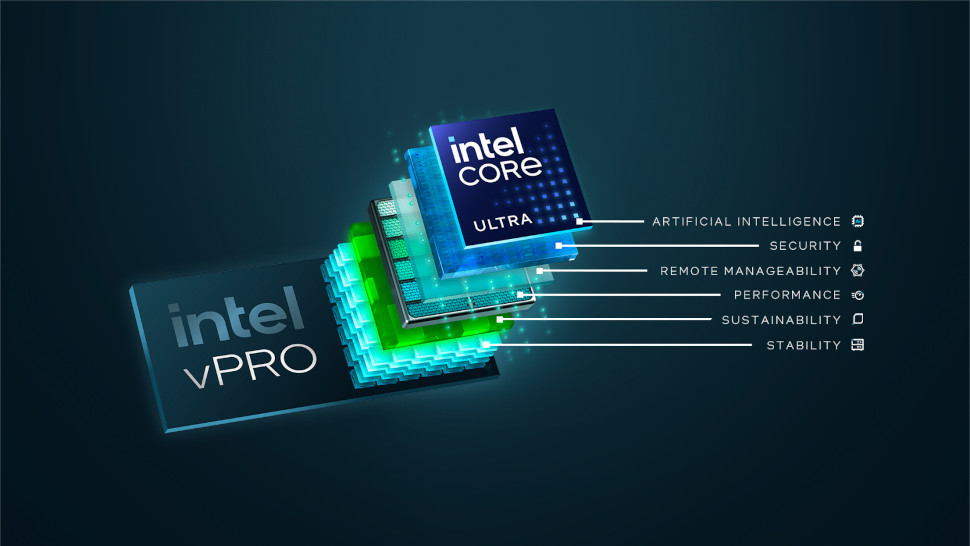Intel — the age of the AI PC is here, and it's going to change how you work forever
New Intel vPro generation is set to bring major improvements across the board

The term "AI PC" has been growing in regularity as more and more hardware manufacturers grasp the true impact that artificial intelligence is set to have on the enterprise space.
Offering a range of benefits, covering not just efficiency and productivity, but also in security and even content creation, AI PCs are set to transform how many of us work and create.
Intel is right at the forefront of this new dawn, with the chip giant unveiling its new vPro platform, designed for the next generation of AI-powered devices, at Mobile World Congress 2024 - but the company sees the benefit of its new chips going much further than just mere productivity increases.
Major upgrade
"This is the biggest infrastructure update of the last 40 years," David Feng, Intel's Vice President, Client Computing Group and General Manager of Client Segments, told TechRadar Pro at MWC 2024. "It's a paradigm shift for compute."
Intel sees its role as helping bring AI to life for businesses everywhere, but Feng realizes that this also requires a slight change in its focus too.
“We used to say we sell performance for a living - but now, we need to learn how to sell experiences for a living," he says, "we can tell you what AI can do for you, but until you have the right software running on it, you only get the bare bones experience.”
This is especially true for business devices, Feng notes, “it takes a few ingredients and platform-level proposition to bring what IT really wants - they want productivity for the users, security, manageability and stability for themselves - that’s the platform.”
Sign up to the TechRadar Pro newsletter to get all the top news, opinion, features and guidance your business needs to succeed!

As odd as it might sound, much of this new development and progress might be motivated by that icon of office software - Windows 10.
First released in July 2015, the platform is still the most widely-used office software platform across the globe - but with Microsoft officially ending support for it in October 2025, and keen to migrate as many customers to Windows 11 as quickly as possible, the need for next-generation hardware to get the most out of the newer software has never been greater.
With Microsoft in particular wholeheartedly embracing AI via its involvement with OpenAI, and the huge amount of investment poured into its Copilot platform, having an AI-ready PC will be vital for users everywhere.
"This is a perfect year - any year that’s a major transition year is going to drive some volume of the refresh," Feng adds. But Intel is also making sure that Windows 10 will still work on its newest hardware, as he claims that although 99.7% of apps will be compatible with the new vPro, the company realizes that some legacy apps may still have an issue.
"The storyline is - big refresh here, refresh now, utilize AI and be AI-ready - because a lot of these experiences are going to continue to happen," adds Jen Larsen, General Manager of Commercial Segments at Intel, noting that the company is building on years of focus and expertise.
"AI for IT is unique, it’s interesting and it really provides a unique value perspective from an enterprise perspective...and it’s ready for you now."
"There's so much new information in the age of AI," concludes Feng, noting the company is, “not just witnessing, but (also) driving the definition of a new category - it’s incredibly exciting.”
- Miss any news from Mobile World Congress? Check out our MWC 2024 live blog

Mike Moore is Deputy Editor at TechRadar Pro. He has worked as a B2B and B2C tech journalist for nearly a decade, including at one of the UK's leading national newspapers and fellow Future title ITProPortal, and when he's not keeping track of all the latest enterprise and workplace trends, can most likely be found watching, following or taking part in some kind of sport.